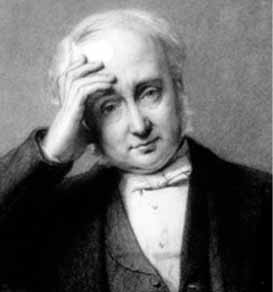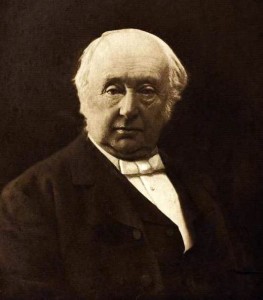Persian Wars
Atlantean-Athenian War, The
The Atlantean-Athenian War as described by Plato has not been unambiguously identified with any known conflict. A number of attempts have been made to link the Atlantis story with the Persian Wars, but such an idea is totally at variance with both chronology and geography, for example those wars took place decades after Solon’s visit to Egypt and the Atlanteans had invaded from the west, namely, Italy (Tim.25b & Crit.114c).*In fact what Plato said was that the invasion came from the Atlantic Sea (pelagos). Although there is some disagreement about the location of this Atlantic Sea, all candidates proposed so far are west of both Athens and Egypt.
A completely different interpretation is offered by George Sarantitis, who claims that there were two wars referred to by Plato dated to 9600 BC and 8600 BC[1470].*
An even more unlikely scenario has been put forward by Diaz-Montexano, who suggests that the war took place in what we now know as the Atlantic Ocean, near Gibraltar. His contention is that the Athenians gradually fought the Atlanteans westward across the Mediterranean until a final battle in the Atlantic outside the Strait of Gibraltar. He maintains that this war took place over a number of years and resulted in the gradual emancipation of Atlantean colonies as they advanced towards the Atlantean capital, before its destruction by earthquake.
I find this whole concept rather fanciful for a number of reasons. Diaz-Montexano places this conflict in the 2nd millennium BC, at a time, when the Athenians did not have the naval capability to mount such a sea offensive over 1,500 miles from home and many hundreds of years before the introduction of triremes. There is no documentary evidence or tradition from this era to support such a contention. Plato’s text describes the Athenians defeating the invaders without any suggestion that their war was anything other than defensive. It must also be considered that Plato records (Tim.25d) that the destruction of Atlantis and Athens occurred “at a later time”, meaning subsequent to the war, suggesting that Atlantis survived the conflict.
In my opinion, the question of the war between Atlantis and Athens has not yet been satisfactorily resolved, just as the war between Atlantis and Egypt is still the subject of debate.
Jowett, Benjamin
 Benjamin Jowett (1817-1893) was a 19th-century translator of Plato who famously declared that “no one knew better than Plato how to invent a noble lie”. His 1871 translation of Plato’s work is probably the most widely used, as it is now out of copyright.
Benjamin Jowett (1817-1893) was a 19th-century translator of Plato who famously declared that “no one knew better than Plato how to invent a noble lie”. His 1871 translation of Plato’s work is probably the most widely used, as it is now out of copyright.
The late Flying Eagle and Whispering Wind offered Jowett’s translation ‘with extra paragraph breaks, headings and clickable table of contents’(c).
Some Atlantis researchers such as Georgeos Diaz-Montexano are highly critical of the translation of certain keywords and phrases by the more popular translators such as Jowett.
Jowett’s commentary(a) shows that he was thoroughly sceptical about Atlantis  and some believe that this view may well have coloured his translation. He voiced the opinion that Plato’s Atlantean War was inspired by the Persian Wars with the Greeks. Those wars took place between 500 and 449 BC, while Solon lived circa 630-560 BC, so it would not have been possible for Solon to refer to the Persian Wars in the Atlantis story he brought from Egypt. We are therefore forced to conclude that Jowett was at least accusing Plato of lying about the provenance of the story, if not the actual contents of the narrative.
and some believe that this view may well have coloured his translation. He voiced the opinion that Plato’s Atlantean War was inspired by the Persian Wars with the Greeks. Those wars took place between 500 and 449 BC, while Solon lived circa 630-560 BC, so it would not have been possible for Solon to refer to the Persian Wars in the Atlantis story he brought from Egypt. We are therefore forced to conclude that Jowett was at least accusing Plato of lying about the provenance of the story, if not the actual contents of the narrative.
>Jowett’s skepticism went as far as to claim the story of Solon’s visit to Egypt was just a legend, even though Herodotus recounted Solon’s visit just over a century later. Peter James [47.59] recalls how early in the 20th century K.T. Frost offered a rebuttal of Jowett’s various objections to the credibility of the Atlantis narrative.<
A concordance of the Atlantis sections of the Dialogues was available as an inexpensive download(b) or in hard copy.
(a) https://ancienthistory.about.com/library/bl/bl_text_plato_critias_intro.htm
(b) https://www.lulu.de/content/731731 (link broken July 2018)
(c) https://atlantis-today.com Go to: Atlantis History by Plato.
Panathenaea
Panathenaea was an important annual festival of Pallas Athene that according to tradition dated from the time of the legendary king Theseus. From 566 BC Pisistratus, the Athenian aristocrat, arranged that every fourth year, when the festival would be known as the Greater Panathenaea, music and poetry competitions were included, together with games and the festival was extended by three or four days.
During annual Lesser Panathenaea there was a solemn procession to the Acropolis in thanksgiving to Athene for having saved the city, giving it victory over the ‘nation of Poseidon’. Ammianus Marcellinus recounts how the peplum, a richly embroidered robe of Minerva (the Roman equivalent of Athena) was carried in this procession, on which could be seen a representation of the war between the Athenians and the Atlantides. That this was a clear reference to the defeat of the Atlanteans is supported by Humboldt, Böckh, Donnelly[1179.91], Baldwin[0653.396] and Joseph.
*Justin Winsor relates the same story with some minor changes “In the Scholia to Plato’s Republic it is said that at the great Panathenaea there was carried in procession a peplum ornamented with representations of the contest between the giants and the gods, while on the peplum carried in the little Panathenaea could be seen the war of the Athenians against the Atlantides. Even Humboldt accepted this as an independent testimony in favor of the antiquity of the story ; but Martin has shown that, apart from the total inconsistency of the report with the expressions of Plato, who places the narration of this forgotten deed of his countrymen at the celebration of the festival of the little Panathenaea, the scholiast has only is read Proclus, who states that the peplum depicted the repulse of the barbarians, i.e. Persians, by the Greeks.” [1673.1.42]
The Persian interpretation is a minority view, which is greatly weakened by the fact that this ceremony was performed at least 138 years before Plato was even born would appear to demonstrate that he could not have invented the existence of Atlantis and in fact the celebratory procession was inaugurated long before the Persian Wars began. Apart from that, the ancient Greeks arrogantly referred to all non-Greeks as ‘barbarians’ and could, in this instance, be applied more aptly to the Atlanteans rather than the Persians.*
The Parian Marble allows us to calculate the date of the first Panathenaea occurring in 1506/5 BC. If ‘the nation of Poseidon’ is not a reference to Atlantis, what does it refer to? One suggestion, perhaps more contentious, is that it is an illusion to the Sea Peoples.
The contest between Athena and Poseidon on the West pediment of the Acropolis is related to the later conflict between Erechtheus, an early king of Athens, and the Eleusinians under the leadership of Eumolpos. Keep in mind that Poseidon is the father of Eumolpos, dated by some to reigning around 1400 BC.
New research by Professor Efrosyni Boutsikas of the University of Kent has shown(a) that the start of the annual festival was signalled by the appearance of the Draco constellation over the Erechtheion on the Acropolis of Athens.
(a) https://www.unreportedheritagenews.com/2011/04/rising-above-acropolis-constellation.html
